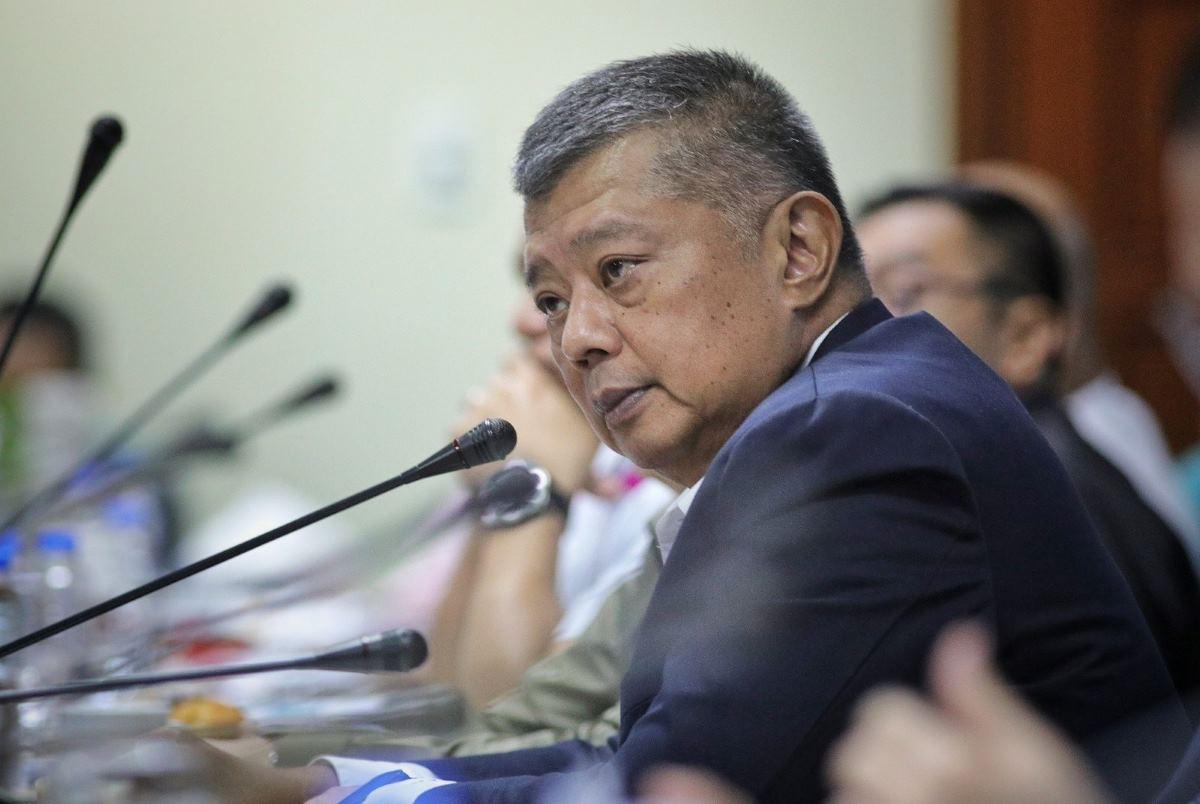Remulla orders NBI to probe illegal activities of foreign diplomats

Amid alleged recordings concerning disputes in the West Philippine Sea, Justice Secretary Jesus Crispin Remulla has ordered the National Bureau of Investigation (NBI) to probe illegal and unlawful activities committed by foreign diplomats.
Remulla said diplomatic immunity is “never absolute” and it is the duty of foreign diplomats to respect the laws and regulations of the receiving state.
“Diplomatic immunity should never be used as a license to exploit our country’s peace and harmony for selfish motives, this privilege does not shield anyone from the consequences of the Rule of Law,” he said in a statement on Tuesday.
The Chinese Embassy in Manila allegedly leaked a transcript of a supposed phone call between a Filipino military official and one of its diplomats regarding a “new model” agreement on the Ayungin Shoal.
Citing the Vienna Convention on Diplomatic Relations, the DOJ said that diplomats, employees of international organizations, and their immediate family members are covered by a certain degree of diplomatic immunity during their stay.
“However, diplomatic immunity is only with respect to official acts performed in the exercise of official duties and functions necessary for advocating international comity, policies and interests,” it said.
GMA News Online has requested comment from the Chinese Embassy in Manila regarding Remulla's statement, but has yet to respond as of posting time.
'Ludicrous, preposterous'
National Security Adviser Secretary Eduardo Año previously said that China’s claim was “absolutely absurd, ludicrous, and preposterous.”
The Department of Foreign Affairs has also said it will investigate the involvement of foreign diplomats in illegal activities and vowed to take the "necessary action."
For his part, Defense Secretary Gilberto Teodoro Jr. had also said that those responsible in recording the alleged conversation be should be expelled from the Philippines.
Año promptly expressed support for Teodoro's call, saying that those behind the recording committed serious breaches of diplomatic protocols and conventions, and violated the Anti-Wiretapping Act.
"Those individuals in the Chinese Embassy responsible for violating Philippine laws and the Vienna Convention on Diplomatic Relations and those responsible for these malign influence and interference operations must be removed from the country immediately," Año said.
China's diplomats
Beijing has strongly criticized the two Philippine officials for their statements, warning that "any hasty action" could "potentially harm" ties with Manila.
China has also said their diplomats should be allowed to freely do their jobs in the country.
“China solemnly demands that the Philippines ensures that Chinese diplomats can perform their duties, stops infringement and provocation and does not deny the facts, act indiscreetly or hurt itself by its own actions," China Foreign Ministry spokesperson Lin Jian said.
Quoting a source in the Chinese Embassy, two major Manila newspapers previously reported about a phone recording in January 2024 between the Chinese side and a Philippine military official, said to be the chief of the Armed Forces of the Philippines Western Command (AFP WESCOM).
Vice Admiral Alberto Carlos was chief of the AFP WESCOM at that time.
A transcript of the conversation was reportedly also provided.
Leave of absence
In the wake of the development, Carlos has taken a leave of absence due to personal reasons, AFP spokesperson Colonel Francel Margareth Padilla said.
Padilla, however, was quick to deny that Carlos' leave was linked to the controversy, saying that the timing was "coincidental."
China’s increasingly aggressive actions, such as harassment of Filipino coast guard vessels and fishermen, in Philippine territories have angered Manila. China has repeatedly assaulted the Philippine Coast Guard and supply boats with water cannons, military grade lasers and dangerous blockings in high seas, causing damage and injuries.
A vital trading and shipping lane, the South China Sea, dotted with rocks, shoals and reefs where rich oil and mineral deposits were found, are claimed in part or in whole by the Philippines, China, Vietnam, Malaysia, Brunei, and Taiwan. Parts of the waters within the Philippines' exclusive economic zone have been renamed West Philippine Sea.
The Philippines in 2016 largely won a landmark case against China’s massive claim in the South China Sea before an arbitration tribunal in The Hague, Netherlands, but Beijing does not recognize the ruling. — AOL/VDV, GMA Integrated News




